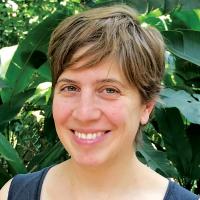
Mariana Benítez
Agency and Directionality in Development
Cellular agency in multicellular development and cancer
Mexico Autonomous National University (UNAM)
Mariana Benítez studied Biology at Mexico's Autonomous National University (UNAM) and a MSc on Non-Linear Dynamics and Complex Systems at the Autonomous University of Mexico City (UACM). Then, she finished a PhD at the Institute for Ecology, again at UNAM, and made two postdoctoral stays, one at the Center for Complex Systems at UNAM and another one at Masaryk University, in the Czech Republic. In 2012 Mariana took a position at the Institute for Ecology (UNAM). Her research has focused on understanding how patterns and collective properties emerge and evolve at different spatial and temporal scales in diverse biological systems. Among her current research interests are: multicellular development and evolution in bacteria and plants, structure and dynamics of agroecosystems and sustainable food systems. Some of the theoretical frameworks that have guided her research are Complexity Sciences, Ecological Evolutionary Developmental Biology and Agroecology. She has adopted theoretical, simulation and empirical approaches allowing for integrative and interdisciplinary research. Her work has also been deeply challenged and enriched by transdisciplinary and political projects in which she has collaborated with diverse groups and communities beyond academia. The UNAM team working with Myxobacteria also includes: Dr. Alejandro V. Arzola (UNAM) and Dr. Natsuko Rivera-Yoshida (UNAM).
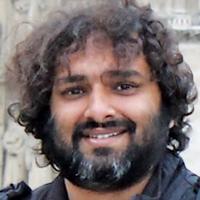
Ramray Bhat
Agency and Directionality in Development
Cellular agency in multicellular development and cancer
Ramray Bhat is an associate professor in the department of Molecular Reproduction, Development and Genetics and an associate faculty of the Centre for BioSystems Science and Engineering at the Indian Institute of Science, Bangalore, India. He has an undergraduate degree in medicine from the University of Calcutta, a PhD in developmental biology from the New York Medical College, and was a Komen postdoctoral fellow at the Lawrence Berkeley National Laboratory. His interests lie at the interface of development, evolution and cancer. His research is funded by the departments of Biotechnology and Science and Technology of the Government of India and the Wellcome Trust-DBT India Alliance.
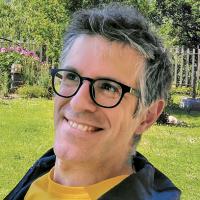
Leonardo Bich
Evolutionary Origins and Transitions of Agency, Higher-Level Agency and Directionality in Ecology and Earth Science, Agential Behavior and Plasticity in Evolution
An organizational account of ecological functions, Directedness in holobiont systems, Integration and individuation in the origin of agency
University of the Basque Country
Leonardo Bich is a ‘Ramon y Cajal’ Researcher at the IAS-Research Centre for Life, Mind, and Society of the University of the Basque Country (UPV/EHU), Spain. He obtained a PhD in Anthropology and Epistemology of Complex Systems from the University of Bergamo. He worked at the CNRS & University of Bordeaux, at the Biology of Cognition Lab of the Universidad de Chile and, as a visiting fellow, at the Center for Philosophy of Science of the University of Pittsburgh. His research is focused on theoretical and epistemological issues related to biological organisation, autonomy, and control and on their implications for investigations in Origins of Life, Synthetic and Systems Biology, and Theoretical Biology.

Ingo Bojak
(Re)Conceptualizing Function and Goal-Directedness
Mistakes in living systems: a new conceptual framework
University of Reading
I am a theoretical physicist by training but have worked as a computational neuroscientist for the last two decades, being particularly interested in modelling the collective activity of neurons. For applications, I have focused on general anesthesia, brain connectivity, multimodal neuroimaging, and advanced data analysis. I have recently started working on projects in computational psychology, e.g., reinforcement learning. Privately, I have maintained an active interest in philosophy, in particular in Aristotelian metaphysics. My work has been interdisciplinary in nature, and I have worked in physics, (bio)engineering, medical neuroscience, and psychology in Germany, Australia, the Netherlands, and now the UK. I am currently a Professor in the School of Psychology & Clinical Language Sciences at the University of Reading, and its Deputy Head. In our project I will be responsible for turning our philosophical ideas into computational structures that can deal with empirical data.
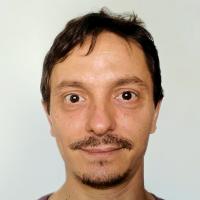
Paride Bollettin
Higher-Level Agency and Directionality in Ecology and Earth Science
An organizational account of ecological functions
Paride Bollettin obtained his PhD in Social Anthropology at the Università degli Studi di Siena. In sequence he worked as a researcher and as a professor in various universities in Italy, Brazil, Latvia and UK. Actually acts as an assistant professor at the Department of Anthropology, Faculty of Science, Masaryk University. He had worked with the Mebengokré of the Trincheira-Bacajá Indigenous Land for sixteen years, developing collaborative researches in diverse topics, including the local experiences of socio-ecological relations.
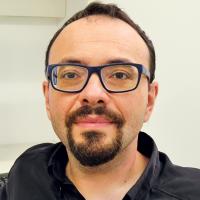
Evgeni Bolotin
Directionality in Genomics and Macroevolution
Mutation rates, variational specificity, and genomic directionality
University of Haifa
Dr. Bolotin develops and executes computational pipelines for the Livnat lab’s ultra-high resolution studies of de novo mutation origination rates as well as applies bioinformatics tools and develops scripts to analyze publicly available datasets in order to conducts a host of studies on the fundamental nature of mutation, including research on structural variation in the human and primate genomes to test predictions of interaction-based evolution. Dr. Bolotin received his undergraduate degree magna cum laude from the Israel Institute of Technology, the Technion, and then continued to a direct PhD track in computational evolutionary genomics with Prof. Ruth Hershberg at the Ruth and Bruce Rappaport Faculty of Medicine at the Technion. Following Ph.D., he joined the Livnat lab as a postdoctoral researcher.

Pierrick Bourrat
Evolutionary Origins and Transitions of Agency
Transitions in individuality: from ecology to teleonomy
Subaward Principal Investigator
Macquarie University
Pierrick is a philosopher of biology at Macquarie University, in Australia, with a background in evolutionary biology and ecology. Pierrick works mainly on conceptual issues related to evolutionary theory, the concept of biological individuality, and major transitions in evolution. He also has interests in the philosophy of causation and cognitive science.
Pierrick has recently published a short book at Cambridge University Press in which he explores the status of units and levels of selection in evolutionary theory. He proposes a suite of criteria to distinguish genuine from arbitrary or conventional units and levels of selection.
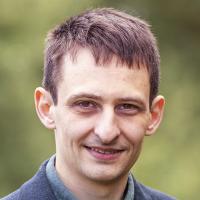
François Cinotti
(Re)Conceptualizing Function and Goal-Directedness
Mistakes in living systems: a new conceptual framework
University of Reading, UK
François is a post-doctoral researcher initially trained as a computational neuroscientist specialised in behavioural modelling. His PhD (2016-2019) was focused on a form of metalearning, in other words dynamically tuning parameters of a reinforcement learning model to simulate long term changes of rat behaviour in a bandit task. He has also developed a novel statistical Bayesian method of quantifying connection rates between neurons and a model of foraging behaviour during two postdoctoral positions. His current role as member of this team is to develop models of haemostasis as a case study of mistake making in organisms.
